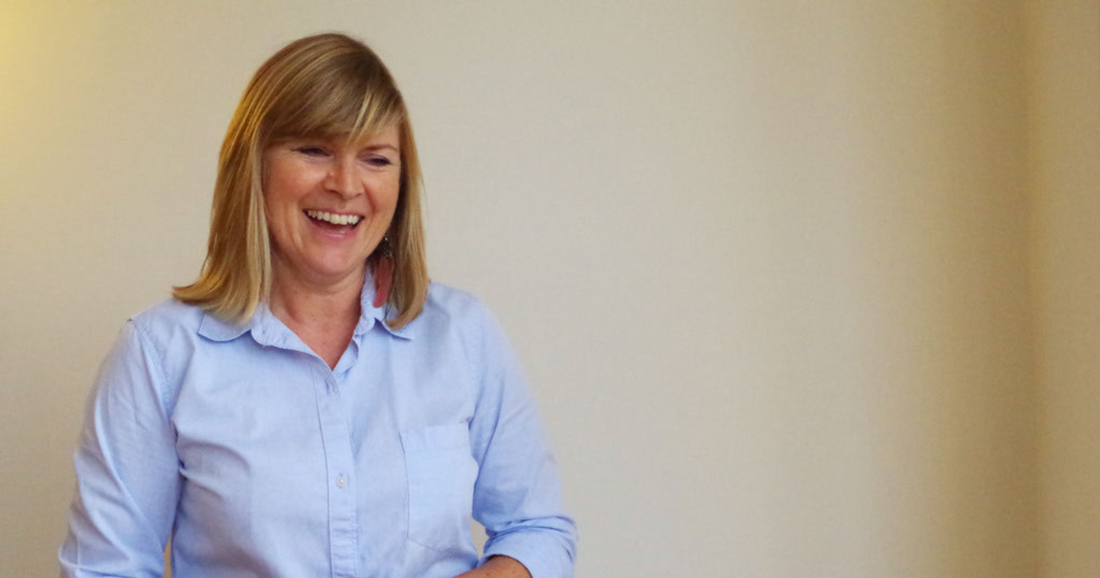
Menopause Awareness Month 2025
Guest expert Caroline Gaskin discusses what Menopause Awareness Month means.
Menopause is very much in the news, moving from a once-neglected topic to lively discussion on social media, prime time TV and even in Parliament.
High profile women from all walks of life are raising awareness of the need to address the challenges women face at menopause.
When I began my practice just over 25 years ago, menopause was hardly taught about or talked about. Women approaching their 40s knew there was change ahead but it was viewed as an obscure and perhaps ominous phase of life.
Menopause is no longer a taboo subject, instead, it’s talked about as a natural part of a woman’s life, still one that is often at odds with our current way of working and living, so there is plenty that needs addressing but nevertheless we are talking!
Increasingly women are speaking up and challenging societal norms, and rightly so. Are we the generation who won’t do menopause quietly?
Speaking about menopause, sharing struggles and successes is empowering more women to take control of their health. Making changes earlier in life and being prepared can significantly ease the transition.
Understanding our bodies and our menstrual cycles is a crucial starting point and so little is taught in our schools.
The Three Stages of Menopause
Menopause is associated with more than 34 symptoms, ranging from physical discomfort to emotional struggles. Some symptoms, such as tinnitus, breathing problems and recurrent viral infections, are often overlooked as menopause symptoms but can be part of the package and cause significant stress.
Perimenopause is a relatively new term and typically begins several years before menopause, with some women experiencing hormonal changes as early as their late 30s.
The changes can be sudden or subtle. Women might notice irregular periods, mood swings, poor blood sugar, changes in libido, gradual weight gain and hair loss are common. Sudden change is often precipitated by intense stress or loss. It’s less common but some women begin to lose muscle and strength in these early stages.
Knowing your body’s natural rhythm and recognising any early signs is instrumental in managing this stage. Changes to diet and lifestyle and adding in some natural therapies can really help regain control and get back in balance.
Yoga had always been a touchstone for stress for me and at this stage I found that I was more wound up after class than before and so I switched to restorative classes and took up birdwatching to help manage the surges of anxiety. Making sure to have some fibre at breakfast and adding magnesium into my life settled my digestion and helped balance my blood sugar.
Late perimenopause is when symptoms really ramp up and women experience an average of 18 months when oestrogen levels drop significantly and find themselves in the eye of the storm. This is when the most profound changes occur.
The UK average age for periods actually stopping is 51 and symptoms can include hot flushes, brain fog, heavy bleeds, headaches, insomnia.
It’s at this stage that many women will wonder about HRT though, from my perspective, there are many natural solutions from herbs to homeopathy and flower essences via superfood cleanses and exercise that can be used instead of HRT or to help manage symptoms that the HRT isn’t solving.
Reducing alcohol, sugar and refined carbohydrates will help with liver function and reduce headaches, night sweats and hot flushes.
Avoiding eating and working late in the evening will help reduce anxiety and have you less likely to wake at Crazy O’Clock.
Making time in the morning to take a walk will help generate the melatonin needed for a good night’s sleep.
And, as Meg Mathews says:
"It’s important to acknowledge that everyone’s menopause journey is unique and if you do decide to go the natural route, it’s important to find your dream team. While you can buy many remedies over the counter, it can be good to work with a professional to ensure you are using the best treatments and dosage for you."
But What About Afterwards?
Statistics suggest that by 2025, over 1 billion women worldwide will be post-menopausal. We are living an average of 30 years beyond menopause and we need to talk about this.
Women need to learn to look after the 3 B’s: bones, bladders, and brains to see us into a strong and vibrant later life.
And we need to start acknowledging the wisdom and gifts that women have to offer beyond the fertile years.
Many women choose to give back, becoming mentors or set up support in education or nature conservation.
I believe the gift of this time after our fertile years can be rich and rewarding and I’ve started to engage with the concept of Elderhood and what that might mean to our generation.
I see Menopause Awareness Month as a time for us to speak up, share our stories, celebrate our collective wisdom and strengths and to hold each other in sisterhood.
Achy Joints
I suffered terribly with achy joints. Some mornings I would struggle to get my body out of bed. Foot issues are also common with the menopause due to hormonal changes. Seeing a podiatrist can help and many women get orthotics; an Epsom salt foot bath helped with my achy feet.
A really nice thing is simply to get into giving yourself a foot massage with organic almond oil. It will help with circulation and joint flexibility. Five minutes before you go to bed is soothing and over time will help your feet and joints to feel better.
Essential fatty acids also help with joint health.
Foggy Brain
Foggy brain was a big one for me. From leaving my keys in the fridge to forgetting my daughter’s date of birth. I found increasing my water intake helped - I try to drink two litres a day.
Australian Bush Flower Essences like the Cognis Essence helped my memory. Taking this can help with clarity and focus.
Body brushing also stimulates detoxification and benefits circulation - I found dry skin brushing with a natural bristle brush before showering in the morning helped to clear my foggy brain. And it’s even better when followed by a cold shower.
Studies have shown that cold water therapy can boost circulation to the brain and improve brain chemistry. I have started cold-water swimming in the sea. The benefits to my mental well-being have been amazing.
